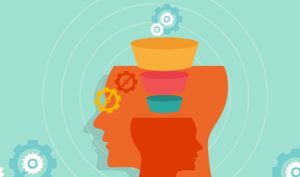
What AI Experts Fear from AI

(Bakhtiar-Zein/Shutterstock)
Rogue AIs. Algorithmic bias. Job losses. These are some of the outcomes that AI developers fear will come from their work, according to a new report issued today by the Deloitte AI Institute and the U.S. Chamber of Commerce.
Titled “Investing in trustworthy AI,” the 82-page report from Deloitte and the Chamber Technology Engagement Center sought to identify the concerns that technology experts have when it comes to the adoption of AI, as well as highlight the impact that government investment in AI can have on the emerging technology.
Algorithmic bias and a lack of humans in decision loops are concerns for about two-thirds of the 250 people who participated in the survey. Another 60% identified “rogue or unanticipated behavior” of autonomous agents as a threat, while 56% said the lack of explainability of algorithms was a concern.
“Perceived, and actual, discrimination by AI systems undermines the confidence individuals have in whether they are being given a fair opportunity when AI is involved,” the report stated. “Bias has the potential to be introduced, intentionally and unintentionally, throughout the lifecycle of the AI system, including during deployment.”
The tech experts surveyed by Deloitte and the Chamber favor government intervention to address concerns about the rise of AI, as well as to help guide the development of new products using AI-based techniques.
For instance, the survey found that 66% of respondents indicated that “the government could mitigate unwanted biases” and found 69% suggested that “the government could encourage accountability for AI decisions.” Two-thirds of survey-takers want the government to reduce the impact of job loss due to AI, while 72% said the government could “mitigate acceleration of social divides between workers with and without AI skills.”
Only 54% of respondents agreed with the idea that government could encourage the use of AI to increase productivity. But 85% expressed confidence that “government policies could increase the likelihood that new materials, medicines, and other products would result from AI innovation.”
When it comes to investing in AI research, 70% of the survey-takers supported the government’s involvement. However, only 43% supported “much more investment,” while 46% supported “somewhat more investment.” More than three out of five respondents would support the government opening up access to its data to improve the training of AI models and to reduce bias.
“Broadly, respondents overwhelmingly supported the notion that government intervention could enhance the benefits of AI and thus contribute to increased AI trustworthiness,” the report states.
AI is becoming pervasive, and is seen as a key enabler of productivity. One-quarter of patents granted by the United States Patent and Trademark Office use AI technologies in some shape or form, reports Deloitte, which claims that the economic impact of AI will be somewhere between $447 billion and $1.43 trillion over the next five years.
“AI has unlocked tremendous social and economic opportunities for organizations and society at large. A trustworthy AI approach is critical to fuel continued innovation, mitigate risks associated with AI and inspire confidence and trust in AI systems,” Beena Ammanath, executive director of the Deloitte AI Institute, stated in a press release. “Building a thriving AI-enabled economy requires collaboration between the private and public sectors, along with public policies that support the trustworthy and ethical development of AI solutions.”
You can access a copy of the report here.
Related Items:
To Bridge the AI Ethics Gap, We Must First Acknowledge It’s There
Looking For An AI Ethicist? Good Luck
AI Ethics Still In Its Infancy































